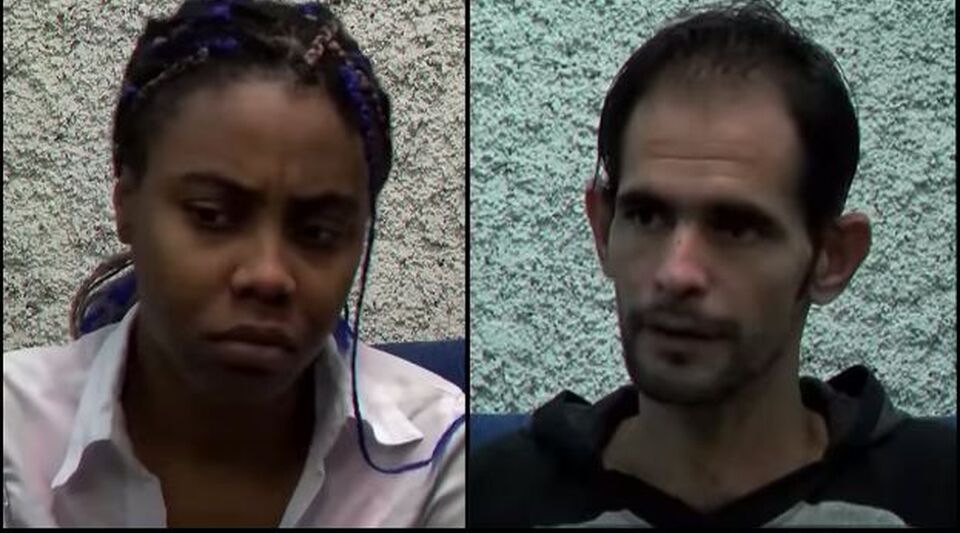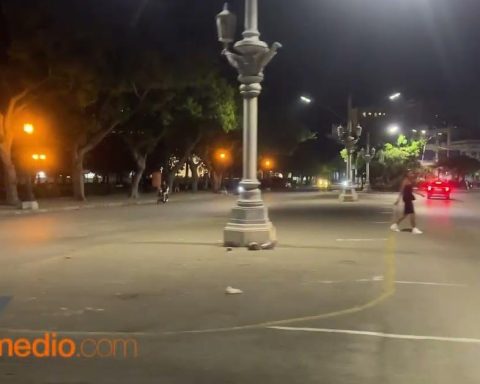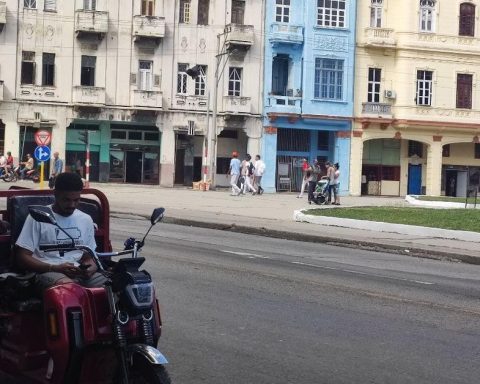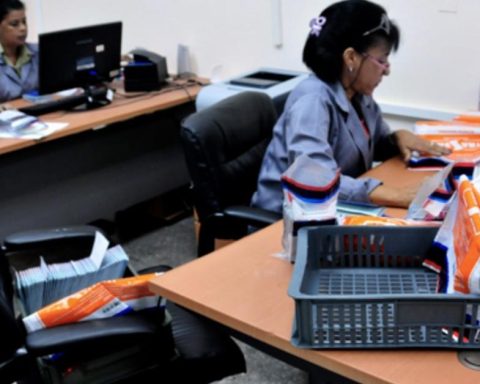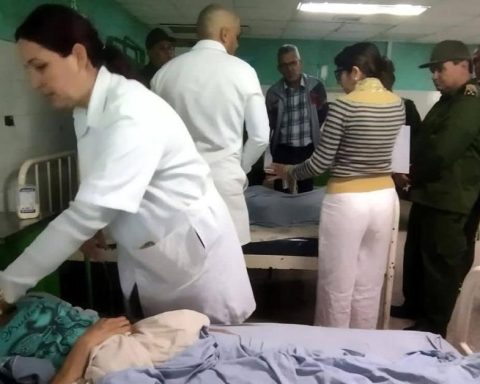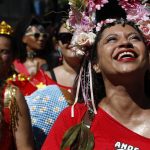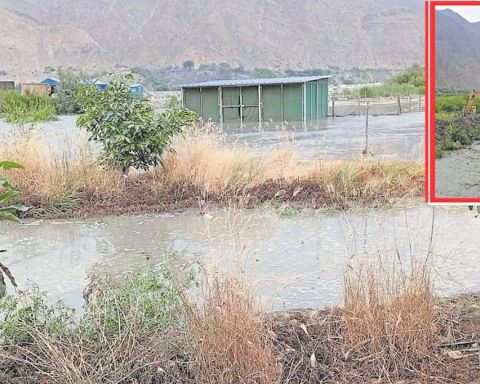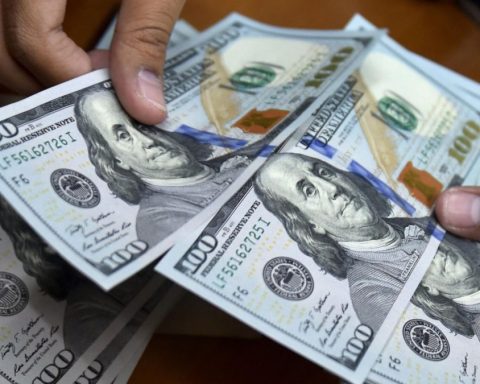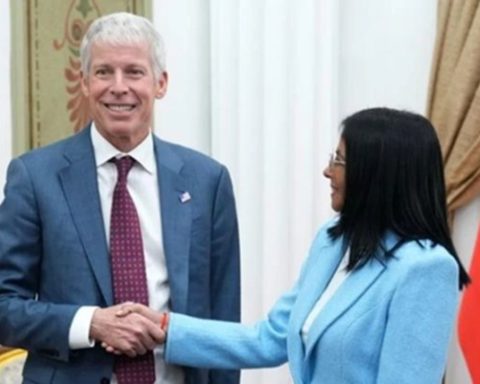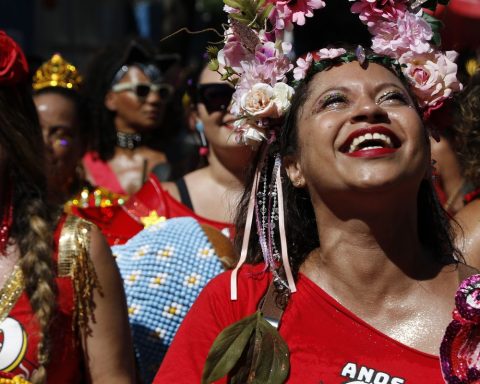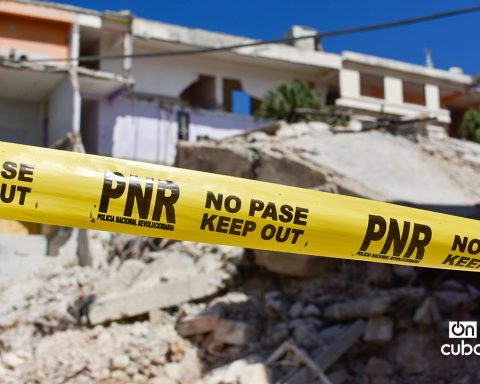The artist Hamlet Lavastida, now in exile, has published a text about his own experience in the cells of Villa Marista to compare it with the mistreatment suffered by Sulmira Martínez Pérez and Daniel Moreno de la Peña, two prisoners whom State Security exhibited this Wednesday on national television as proof that “foreign agents” finance activists on the island.
Arrested on January 10 after announcing on networks his intention to hold a protest in the streets and confined to Villa Marista, the headquarters of the political police in Havana, until the March 17 to the Guatao prisonMartínez appeared in a video on the official program Razones de Cuba in what appear to be different, edited moments of an interrogation.
Thus, the 21-year-old girl is accused of having made posts on Facebook with the intention of “standing out” and gaining fame. “I decided to open an account against the revolutionary process under the name of Salem Cuba Censura. I created it because I needed the money,” she says, avoiding looking at the camera.
Martínez claimed to have published content against Miguel Díaz-Canel, the Communist Party and various leaders. In addition, he said he had linked to the profile known as Yamila La Hija de Maceo, with whom he established contact through Messenger.
In addition, they warn that on the Island there are “legal regulations” to punish anyone who uses the Internet to carry out “practices” against State security
Used to slander and discredit the dissidence within the Island, the space continues with a voice in off which says pompously: “The counterrevolution based abroad allocates more funds every day in search of generating calls in the digital and physical space for the social destabilization of the Cuban nation, in its eternal desire to destroy the revolutionary system.”
In addition, they warn that on the Island there are “legal regulations” to punish anyone who uses the Internet to carry out “practices” against State security. The Penal Code, which entered into force last December, increased the penalties against human rights defenders, activism and protest criticism on social networks. In its article 143, the regulations indicate that those who support, promote or receive resources “with the purpose of paying for activities against the State and its constitutional order” incur a penalty of deprivation of liberty from four to ten years.
The program accuses those who plan alleged “military infiltrations” into Cuban territory. “It seems that they wanted to repeat the terrorist acts and crimes committed by the armed counterrevolutionary bands in the Escambray,” they conjecture.
Daniel Moreno de la Peña, for his part, is presented as a criminal linked to the Cuban economist Manuel Milanés. “We coordinated that he should send me some money, which I received”, so that I would carry out “the burning of a ranch on the limits of Sancti Spíritus and (San José de las) Lajas, in Cienfuegos” after the protests of July 11, 2021. Moreno claimed to have been detained the following month while trying to leave Cuba illegally, and later released in September.
On this sort of theater of “self-incrimination”, Hamlet Lavastida, who spent three months in Villa Marista before being forced into exile in Europe, he wrote this Thursday on Facebook: “After extensive and prolonged exposure to psychological torture for months, they take you there, which is actually down there, and this happens without warning. It is the same location where Sulmira Martínez and Daniel Moreno appear” .
“One leaves that place terrified, rethinking and repairing what one said there,” he reflected. “Whether or not your testimony can be used and turned into self-incrimination
Lavastida recalled the methods of the political police, such as the disorientation to which they submit the interrogated, the change of cells and the psychological manipulation to make the prisoner feel that he is about to “get out of there”. “The small room is full of dirty mattresses and half-rotten rags,” she explained, where they hang the shackles known as beads to “warn” the prisoner of what is about to happen to him.
“Then you go downstairs, you keep going down until you reach what appears to be a basement. You come to a long, dirty, dark, and damp corridor that seeps water. Your head almost collides with the ceiling, because of how small and reduced that room is. endless corridor”, he assured, recounting the swing to which the prisoner is subjected before the interrogation, carried out with “two microphones down, two cameras on their respective tripods and two other light sources, all focused on the ‘objective'”.
“One leaves that place terrified, rethinking and repairing what one said there,” he reflected. “Whether or not your testimony can be used and turned into self-incrimination. If one said one word too many, if one blamed someone else. If one was led, from this disorientation, to say something wrong or mentioned the same words that these officials put in your mouth.”
The key, Lavastida exposes, is humiliation on national television. Presenting the detainee as a criminal and an outcast, as they have done with Martínez and Moreno, manipulating the recording so that it adapts to the account of Razones de Cuba or of some official spokesperson, such as Humberto López. The artist added that he was still waiting to see how Televisión Cubana manipulated the video that he was also forced to record, and he conjectured that the time had not yet come for this recording to be useful to State Security. “In Villa Marista you never know,” he declared.
________________________
Collaborate with our work:
The team of 14ymedio He is committed to doing serious journalism that reflects the reality of deep Cuba. Thank you for accompanying us on this long road. We invite you to continue supporting us, but this time becoming a member of our newspaper. Together we can continue transforming journalism in Cuba.
